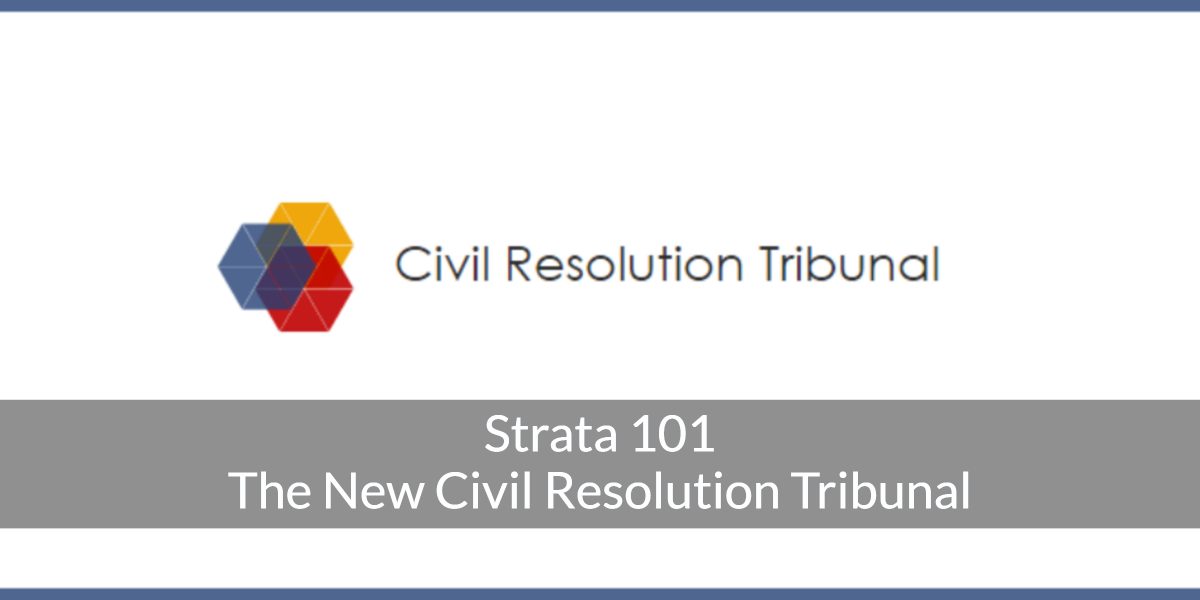Although I refer to this as the “new” Tribunal, it has not yet come into existence. We expect it to be operational in early 2014. The Civil Resolution Tribunal should, if it works as it is intended, have a huge effect on the relationship of owners with their strata councils and property managers.
Currently, if an owner wishes to take legal action because he or she feels that he or she is being unfairly treated by their strata council, which often takes the form of recurring fines, and penalties and interest, being assessed against the owner’s unit in response to some complaint from another owner or owners, that legal case can only be heard in the BC Supreme Court.
That level of court is more formal than the Provincial Court Small Claims Division and also more expensive, involving lengthier delays to get to a decision. It usually also requires the assistance of a lawyer. Most owners, even though seriously upset with the actions of their council, are reluctant to sue because of the high cost involved. Consequently, strata councils and their advising property managers, frequently get away with misinterpretation of the Strata Property Act and even their own strata by-laws, misapplication of those by-laws and basically, a flawed process that amounts to a lack of fairness and natural justice.
The Civil Resolution Tribunal Act gives the Tribunal the authority to handle unfair actions by the strata corporation or by people owning more than half of the strata lots in a complex (with the accompanying majority of votes). Uneven, arbitrary or non-enforcement of strata bylaws will also be dealt with by the Tribunal.
The act provides the Civil Resolution Tribunal authority to handle:
- small claims disputes where the parties decide to take the matter to the tribunal instead of the court, up to a maximum value of $25,000 for:
- debt or damages;
- specific performance of an agreement relating to personal property or services; or
- relief from opposing claims to personal property
- recovery of personal property
- strata disputes between owners of strata properties and strata corporations for a wide variety of matters such as:
- non-payment of monthly strata fees or fines;
- unfair actions by the strata corporation or by people owning more than half of the strata lots in a complex;
- uneven, arbitrary or non-enforcement of strata bylaws (such as noise, pets, parking, rentals);
- issues of financial responsibility for repairs and the choice of bids for services;
- irregularities in the conduct of meetings, voting, minutes or other matters;
- interpretation of the legislation, regulations or bylaws; and
- issues regarding the common property.
The tribunal will not decide tribunal matters that affect land, such as:
- ordering the sale of a strata lot;
- court orders respecting rebuilding damaged real property;
- dealing with developers and phased strata plans;
- determining each owners’ per cent share in the strata complex (the “Schedule of Unit Entitlement”).
The advantage for owners of this new Tribunal is that its services are designed to encourage early resolution of disputes at no cost. If early resolution through the self-help on-line process is not possible, there are a progression of next steps including on-line party to party negotiations, case management and facilitated settlement discussions, mediation, and finally, adjudication, which will involve a decision made by a third party that will be binding on the parties.
The strata corporation does not have a choice; it must participate in the process provided by the Tribunal. Individuals can access the Tribunal’s services easily and without the need for a lawyer.
With the creation of the Tribunal, it would appear that the shoe is now on the other foot. Whether this increases the number of complaints that a strata corporation will have to address, in an external setting, remains to be seen.
Strata councils and property managers would, however, be well advised to prepare for that likelihood by reviewing and improving their practices and processes in relation to how they deal with owners and alleged by-law or rule infractions.
For more information about the Civil Resolution Tribunal, the BC government has provided useful material on its website at http://www.ag.gov.bc.ca/legislation/civil-resolution-tribunal-act/index.htm.
If you have any questions about any of the information you find there, contact us and we’ll do our best to answer.



